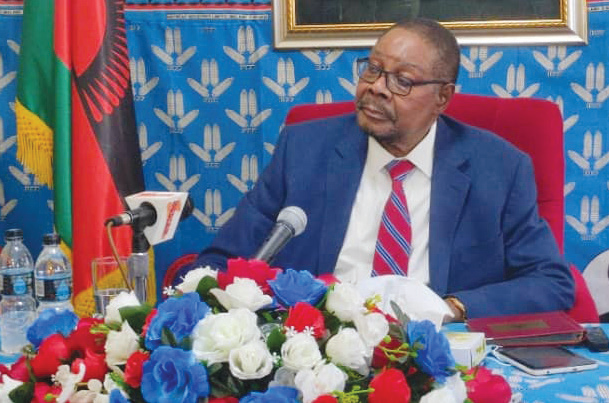Strengthen procurement systems, end corruption
A robust and functioning national financial management system requires three components—a strong budget tracking system, an efficient procurement system and an effective audit system.
When these three aspects are working in tandem, a country’s financial management system guarantees that the available resources are directed to predetermined priority areas, ensures that the government gets value for money and reduces wastage of resources.
When one or all of them fail, corruption reigns. Fraud becomes so institutionalised that people have to pay a bribe to access even some of the most basic services and resources are wasted on projects that can generate a kickback for the key players in the procurement chain.
Unfortunately, Malawi is on the wrong end of this continuum. Corruption has become so pervasive that politicians feel they have the power to influence and, if it serves their interests, distort national procurement systems.
There are stories about some ministers coercing civil servants to award government contracts to their cronies, usually for a kickback to them or to return some misguided favour for funding their political campaigns and ascent to power.
The twisted relationship between politicians and some unprincipled businesspersons has thrived in Malawi’s inept financial management framework, costing taxpayers billions of kwacha.
It is against this backdrop that President Lazarus Chakwera should be commended for tasking the Ministry of Information and the Public Procurement and Disposal of Assets Authority (PPDA) to digitise and automate the national procurement system
In Chakwera’s reasoning, automating the procurement system can help curb corruption, promote clean business dealings, increase accountability in public spending and improve the speed and delivery of public services.
On his best day, the President can produce some visionary and inspiring ideas that if implemented successfully, and followed to the letter, can lift Malawi out of poverty.
Chakwera and some key stakeholders in the private sector are finally speaking the same language. Earlier this week, the Malawi Confederation of Chambers of Commerce (MCCCI) urged government to contain corruption to promote economic growth.
A few days before that, Vice-President Saulos Chilima said if procurement professionals, particularly those in the public sector, did their work as “moved by their conscience”, then Malawi can ensure efficiency in the use of public financial resources.
The reasoning behind the proposals is simple. If procurement systems were automated in a way that prevents exploitation, only the bidders who can provide the best services at reasonable prices will secure the much-coveted government contracts.
That would facilitate the transition from the current flawed system to a more efficient one where contracts are awarded on merit and a history of good public service delivery.
If the procurement system envisioned by Chakwera, his Veep and the private sector works as it should, taxpayers will get value for money because government will spend on projects that can ensure quality service delivery in the public sector.
It is important to note, however, that a procurement system, no matter how robust it is, will not work if not backed by strong budget tracking and efficient auditing systems.
The first step for the government should be to ensure that government is spending on priority areas outlined in national development programmes such as the Malawi 2063 and the third iteration of the Malawi Growth and Development Strategy (MGDS III).
Second, Treasury should ensure that public officers in government ministries, departments and agencies do not spend beyond their Parliament-approved allocations.
Aside from that, government should invest in the National Audit Office to ensure that it can investigate all cases of suspected financial mismanagement. This will be important to ensure that Capital Hill is only paying for services delivered.
It will also provide a basis for the procurement agencies to identify and where applicable, punish unprincipled businesses that want to siphon government funds for private gain.
This is an opportune moment for Chakwera and company to act. The President still has some political capital and his goals seem aligned with the aspirations of the private sector. The timing couldn’t be better.





